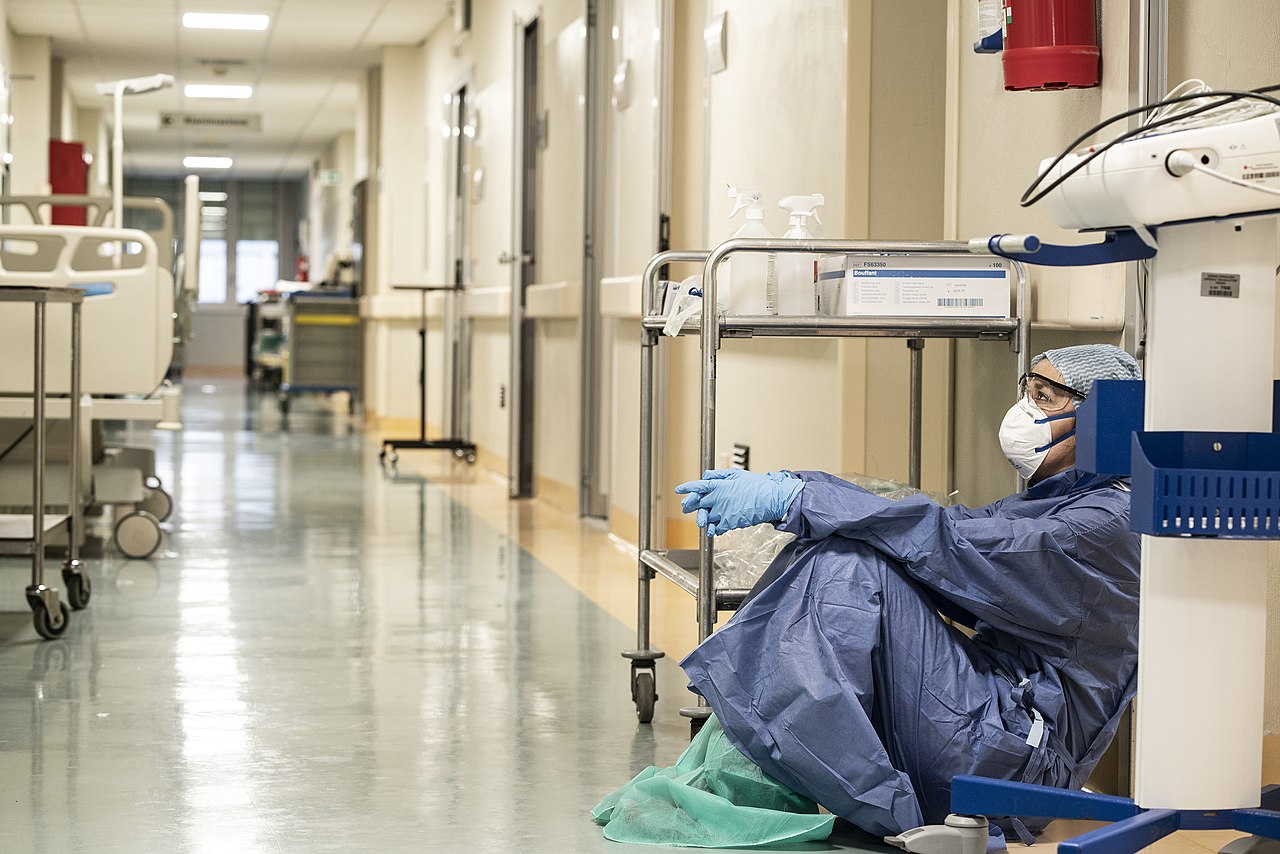
National Institutes of Health
Editors:
Lauren Robertson, BA, MPT
Judy Johnstone, BA
Contact hours: 8.0
AOTA CEUs: 0.8
Expiration date: December 31, 2026
Course price: $29*
*Register or login when you reach the last chapter.
Course Summary
In early 2020, medical and social science researchers sprang into action as they saw signs of unusual stress in the healthcare professionals who were faced with overwhelming numbers of COVID patients, some of whom were not going to survive. As numbers of infections grew exponentially it was clear that mental health among healthcare workers was being challenged as never before. This course brings together the findings of eight research groups who examined coping mechanisms that are both supportive and pragmatic.
To understand the psychological impact of COVID on healthcare professionals in the United States, U.S. researchers looked at an array of potential symptoms related to stress in COVID healthcare workers. These included anxiety and stress, depressive symptoms, general anxiety, tiredness, control beliefs, and proactive coping. Results showed higher levels of anxiety and depressive symptoms, more tiredness and concern for their health, and more severe stress appraisals, along with lower levels of perceived control and coping compared to age-matched controls. In conclusion, the authors warned of potential ongoing mental health impairment in this cohort.
In shortened form, here are the topics that comprise this course: (1) Traumatic Stress in Healthcare Workers During COVID-19; (2) COVID-19 Stress Syndrome; (3) Coping with COVID-19; (4) Mental Health Challenges of U.S. Healthcare Professionals; (5) Psychological Support for Healthcare Workers; (6) Breaking the Silence; (7) Caring for Health Professionals. . . An Epidemic of Empathy; (8) Social Stigma during COVID-19; and (9) The Impact of COVID-19 on Allied Health Professionals.
For Mail Order
To register and pay via U.S. mail, please download the PDF below and follow the written instructions.
![]() Stress of COVID-19: Coping Strategies for Healthcare Workers
Stress of COVID-19: Coping Strategies for Healthcare Workers
Target Audience
Nurses, nurse practitioners, advanced practice nurses, physical therapists, physical therapy assistants, occupational therapists and occupational therapy assistants*.
*If you are an OT or OTA, you may need the following information for relicensure:
![]() ATrain Education is an AOTA Approved Provider of professional development. Approved provider #6558. This distance learning-independent is offered at 0.8 CEUs, introductory, Foundational Knowledge. The assignment of AOTA CEUs does not imply endorsement of specific course content, products, or clinical procedures by AOTA.
ATrain Education is an AOTA Approved Provider of professional development. Approved provider #6558. This distance learning-independent is offered at 0.8 CEUs, introductory, Foundational Knowledge. The assignment of AOTA CEUs does not imply endorsement of specific course content, products, or clinical procedures by AOTA.
Criteria for Successful Completion
Study the course material, achieve a score of 80% or higher on the post test (the post test can be repeated if a learner scores less than 80%), complete the course evaluation, and pay where required. No partial credit will be awarded.
Accreditation
To find specific accreditations or approvals, click here.
Conflict of Interest/Commercial Support Disclosure
The planners and authors of this learning activity have declared no conflicts of interest, vested interest, or financial relationship that may influence the content of this activity. All information is provided fairly and without bias.
ATrain Education, Inc. received no outside financial or commercial support in the preparation, presentation or implementation of this learning activity and has no affiliation with any company whose products or services are mentioned in this activity.
Course Objectives
When you finish this course you will be able to*:
- Explain 3 symptoms associated with psychological trauma.
- List 5 ways in which the COVID-19 pandemic is affecting mental health.
- State 2 elements of self-efficacy that you can rely on in coping with COVID-19.
- Explain 3 ways in which your mental health challenges can be met and resolved.
- State 2 ways in which psychosocial support can be demonstrated in your own clinical setting.
- Understand the conspiracy of silence regarding mental health issues and suicide among healthcare workers.
- Define the phrase “epidemic of empathy.”
- Understand how social stigma affects healthcare providers during a pandemic.
- State 3 key impacts COVID-19 is having on allied health professionals.
*Please note: attainment of course objectives will be assessed in the course evaluation.
